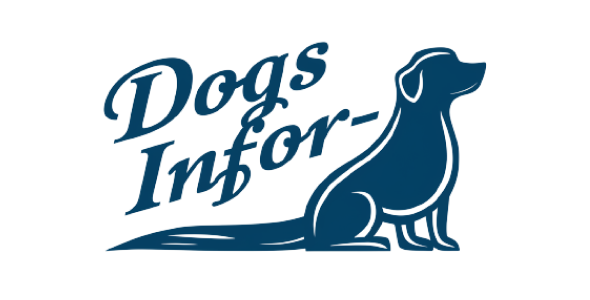Just like humans, dogs require a balanced diet to maintain optimal health and well-being. But what exactly constitutes Healthy Food For Dogs?
Let’s dive into the specifics of canine nutrition and explore how you can provide the best diet for your four-legged companion with Dogs Infor.
Understanding Dog Nutrition
Dogs need a balanced diet to thrive. Providing the right nutrients is crucial for their overall health, energy levels, and lifespan.
Essential Nutrients for Dogs
Dogs require a variety of nutrients for optimal health, including:
- Protein: Essential for building and repairing tissues, muscles, and organs. Good sources include meat, poultry, fish, eggs, and dairy products.
- Carbohydrates: Provide energy for daily activities. Good sources include grains, vegetables, and fruits.
- Fats: Provide energy, support hormone production, and aid in nutrient absorption. Good sources include oils, fatty fish, and meat.
- Vitamins: Essential for various bodily functions, including vision, immune system health, and bone growth.
- Minerals: Important for bone health, muscle function, and electrolyte balance.
The Importance of a Balanced Diet
A balanced diet ensures your dog receives the right amount of each nutrient, preventing deficiencies and promoting overall health. An unbalanced diet can lead to:
- Weight problems: Too much food or too many calories can lead to obesity, while too little food can lead to malnutrition.
- Digestive issues: Poor-quality food or an unbalanced diet can cause digestive upset, diarrhea, or constipation.
- Skin and coat problems: Nutritional deficiencies can affect the skin and coat, leading to dryness, shedding, or dullness.
- Immune system weakness: A lack of essential nutrients can weaken the immune system, making your dog more susceptible to illness.
Nutritional Needs by Life Stage
A dog’s nutritional needs change throughout their life. Here’s a breakdown of key considerations:
- Puppies: Require a diet high in protein and calories to support rapid growth and development.
- Adult Dogs: Need a balanced diet that provides the right amount of protein, carbohydrates, and fats for their energy levels and activity.
- Senior Dogs: May need a diet lower in calories and higher in protein to support muscle mass and maintain energy levels. They may also benefit from joint support supplements.

Choosing the Right Dog Food
Selecting the right dog food is crucial for your dog’s health and well-being. There are various options available, each with its own pros and cons. Here’s a breakdown of popular choices:
Commercial Dog Food Options
- Dry Food: Most common type, typically kibble-shaped, and often the most affordable. Offers long shelf life and is convenient for storage.
- Wet Food: Comes in cans or pouches, typically higher in moisture content and often more palatable for dogs.
- Semi-Moist Food: A combination of dry and wet food, offering some of the benefits of both.
- Prescription Diets: Formulated for dogs with specific health conditions, such as kidney disease, allergies, or obesity. Available only through veterinarians.
Considerations:
- Quality Ingredients: Look for foods with high-quality protein sources, like meat, poultry, or fish, as the first ingredient.
- Balanced Nutrition: Ensure the food meets your dog’s nutritional needs based on their age, breed, and activity level.
- Avoid Fillers: Be wary of foods with excessive fillers, such as grains or by-products, which provide little nutritional value.
- Read Reviews: Check online reviews and consult with your veterinarian for recommendations.
Homemade Dog Food
- Pros: Allows for greater control over ingredients and can be tailored to your dog’s specific needs.
- Cons: Requires time and effort to prepare, and it’s essential to ensure the food is balanced and meets all nutritional requirements.
- Consultation: Always consult with your veterinarian before preparing homemade dog food to ensure it’s nutritionally complete.
Raw Dog Food
- Pros: Often considered a more natural diet, mimicking what dogs would eat in the wild. Can improve digestion and coat health.
- Cons: Requires careful handling and storage to prevent bacterial contamination. May not be suitable for all dogs, especially those with compromised immune systems.
- Veterinary Guidance: Consult with your veterinarian to determine if a raw diet is appropriate for your dog and for guidance on safe handling and storage.
Reading Food Labels
- Ingredient List: The first few ingredients should be high-quality protein sources. Avoid foods with excessive fillers or by-products.
- Guaranteed Analysis: This section lists the minimum and maximum percentages of protein, fat, fiber, and moisture.
- Nutritional Completeness: Look for a statement indicating that the food is “complete and balanced” for your dog’s life stage.

Creating a Balanced Dog Diet
A balanced diet is essential for your dog’s health and well-being. It ensures they receive the right amount of nutrients for optimal energy levels, growth, and overall health. Here’s a breakdown of key components for creating a balanced diet:
Protein Sources
- Importance: Protein is crucial for building and repairing tissues, muscles, and organs. It’s also essential for growth, hormone production, and immune function.
- Good Sources:
- Meat: Chicken, beef, turkey, lamb, fish (salmon, tuna, sardines)
- Eggs: A good source of protein and essential amino acids.
- Dairy Products: Yogurt, cottage cheese (in moderation for some dogs).
Carbohydrates
- Importance: Carbohydrates provide energy for daily activities and support brain function.
- Good Sources:
- Grains: Brown rice, oats, barley, quinoa (choose whole grains for higher fiber content).
- Vegetables: Sweet potatoes, carrots, green beans, broccoli, spinach.
- Fruits: Apples, bananas, blueberries, melons (in moderation due to sugar content).
Fats
- Importance: Fats provide energy, support hormone production, and aid in nutrient absorption. They also contribute to a healthy coat and skin.
- Good Sources:
- Oils: Salmon oil, flaxseed oil, olive oil.
- Fatty Fish: Salmon, tuna, sardines.
- Meat: Fatty cuts of meat, like ground beef.
Vitamins and Minerals
- Importance: Vitamins and minerals are essential for various bodily functions, including vision, immune system health, bone growth, and energy production.
- Sources: Many vitamins and minerals are naturally found in protein sources, carbohydrates, and fats. However, you may need to supplement your dog’s diet with specific vitamins and minerals based on their individual needs and your veterinarian’s recommendations.
Conclusion
Feeding your dog a healthy diet is one of the most loving things you can do for them. By understanding their nutritional needs and making informed choices, you can help ensure they lead a long, happy, and healthy life. Whether you opt for commercial dog food, homemade meals, or a combination of both, the key is balance and quality.

Related Post
How To Keep Dog Food Fresh? Tips For Nourishing Your Pup
Is Honey Good For Dogs? Benefits, Risks, And How To Use It
Dog Gum Color: Recognizing Canine Health Issues